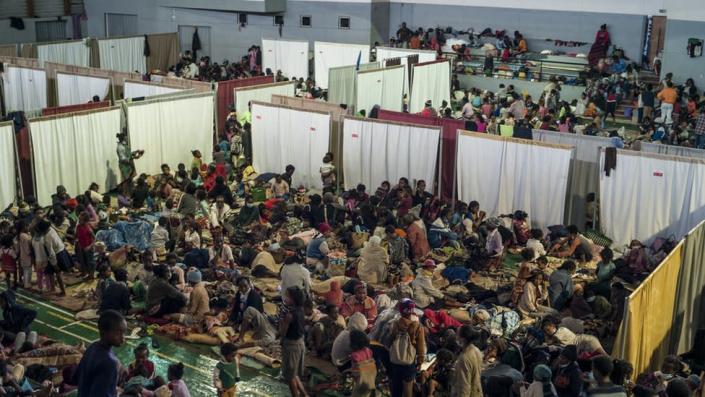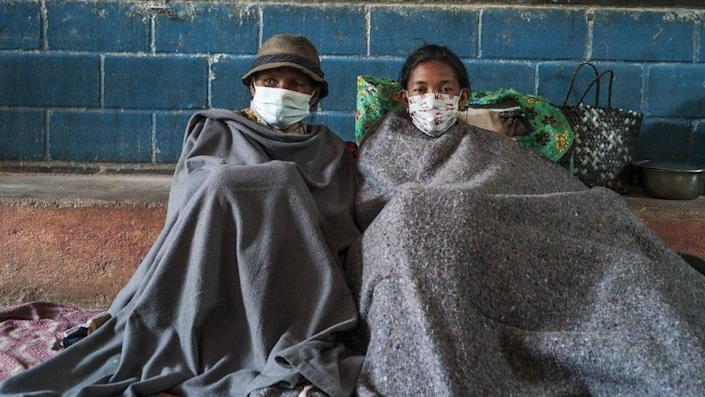
Strong wind and rain hit the east coast of Madagascar on Saturday as Cyclone Batsirai made landfall – the second major storm in less that two weeks.
Gusts of up to 250km/h (155mph) are forecast, and waves up to 15m high.
Many people have been moved to shelters and local officials fear that landslides and flooding could leave tens of thousands more homeless.
Storm Ana caused widespread destruction when it hit the Southern African island nation last month, killing 55 people.
At a shelter for people made homeless by last month’s Cyclone Ana, people feared there was more devastation to come.
“We are stuck here. We can’t bring our children outside because it’s cold and we are afraid of landslides. Better for us to be cautious and stay here,” said Faniry, only giving her first name.
The streets of the city were quiet on Saturday, and some businesses were shuttered.
On the east coast, where the cyclone has made landfall, 200 people had crammed into one room in a concrete building in the town of Vatomandry, hoping to wait out the storm in the relatively strong structure.
Clean water is scarce in the town after the utility company switched off supplies ahead of the storm, prompting fears of illness caused by dirty water.
“The government must absolutely help us. We have not been given anything,” said community leader Thierry Louison Leaby.
The WFP (UN World Food Programme) has prepared food stocks to distribute to those in need, while some people have already been evacuated. The UN has put rescue aircraft on standby.
With wind speeds of up 250 km/h (155 mph), experts fear that Cyclone Batsirai could be even more powerful than Storm Ana, which also hit Mozambique, Malawi and Zimbabwe.
Rainfall of up to 50cm (20 inches) was forecast for Saturday, raising the spectre of flash floods as the ground is already saturated, while the cyclone could also cause waves of 15 metres (50 feet).
Environment Minister Vahinala Raharinirina told the BBC that it could be the worst cyclone to hit the island for 17 years, affecting some 600,000 people in total.


The WFP says the recent pattern of destructive storms caused by global warming and climate change has caused loss of harvest, high food prices and increased food insecurity in the region.
“The people of Southern Africa have been on the front lines of climate extremes for many years now and each passing storm sets them back, resetting the progress made,” said senior WFP official Margaret Malu.
Experts say that extreme weather events like cyclones will become more frequent because of climate change.
Madagascar is also just recovering from the effects of an extreme drought, which was also blamed on global warming.
Ms Raharinirina said that the country had submitted a plan to the COP26 climate conference, which showed it needed $1bn (£740m) a year to adapt to the effects of climate change.




